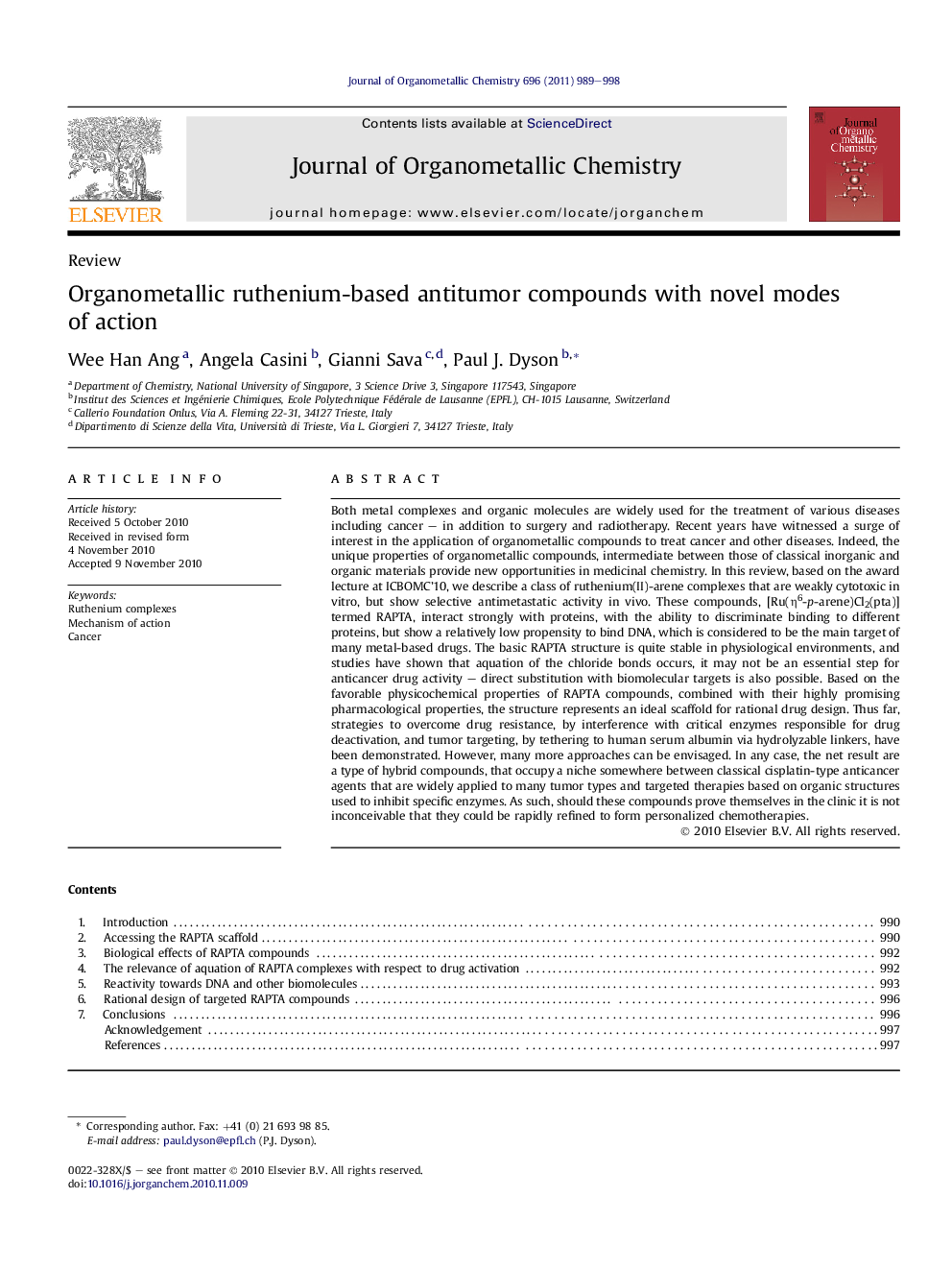| کد مقاله | کد نشریه | سال انتشار | مقاله انگلیسی | نسخه تمام متن |
|---|---|---|---|---|
| 1324604 | 977349 | 2011 | 10 صفحه PDF | دانلود رایگان |

Both metal complexes and organic molecules are widely used for the treatment of various diseases including cancer – in addition to surgery and radiotherapy. Recent years have witnessed a surge of interest in the application of organometallic compounds to treat cancer and other diseases. Indeed, the unique properties of organometallic compounds, intermediate between those of classical inorganic and organic materials provide new opportunities in medicinal chemistry. In this review, based on the award lecture at ICBOMC’10, we describe a class of ruthenium(II)-arene complexes that are weakly cytotoxic in vitro, but show selective antimetastatic activity in vivo. These compounds, [Ru(η6-p-arene)Cl2(pta)] termed RAPTA, interact strongly with proteins, with the ability to discriminate binding to different proteins, but show a relatively low propensity to bind DNA, which is considered to be the main target of many metal-based drugs. The basic RAPTA structure is quite stable in physiological environments, and studies have shown that aquation of the chloride bonds occurs, it may not be an essential step for anticancer drug activity – direct substitution with biomolecular targets is also possible. Based on the favorable physicochemical properties of RAPTA compounds, combined with their highly promising pharmacological properties, the structure represents an ideal scaffold for rational drug design. Thus far, strategies to overcome drug resistance, by interference with critical enzymes responsible for drug deactivation, and tumor targeting, by tethering to human serum albumin via hydrolyzable linkers, have been demonstrated. However, many more approaches can be envisaged. In any case, the net result are a type of hybrid compounds, that occupy a niche somewhere between classical cisplatin-type anticancer agents that are widely applied to many tumor types and targeted therapies based on organic structures used to inhibit specific enzymes. As such, should these compounds prove themselves in the clinic it is not inconceivable that they could be rapidly refined to form personalized chemotherapies.
A series of modified RAPTA compounds based around a single organometallic scaffold have been developed that have helped to illuminate the mechanism of the anticancer activity. The understanding of how each part of the molecule contributes to the function of the complex as an antitumor agent is herewith provided.Figure optionsDownload as PowerPoint slideResearch highlights
► Organometallic Ru(II) complexes as anticancer agents.
► Selective antimetastatic activity.
► Interactions of RAPTA compounds with biomolecules: mechanistic insights.
Journal: Journal of Organometallic Chemistry - Volume 696, Issue 5, 1 March 2011, Pages 989–998